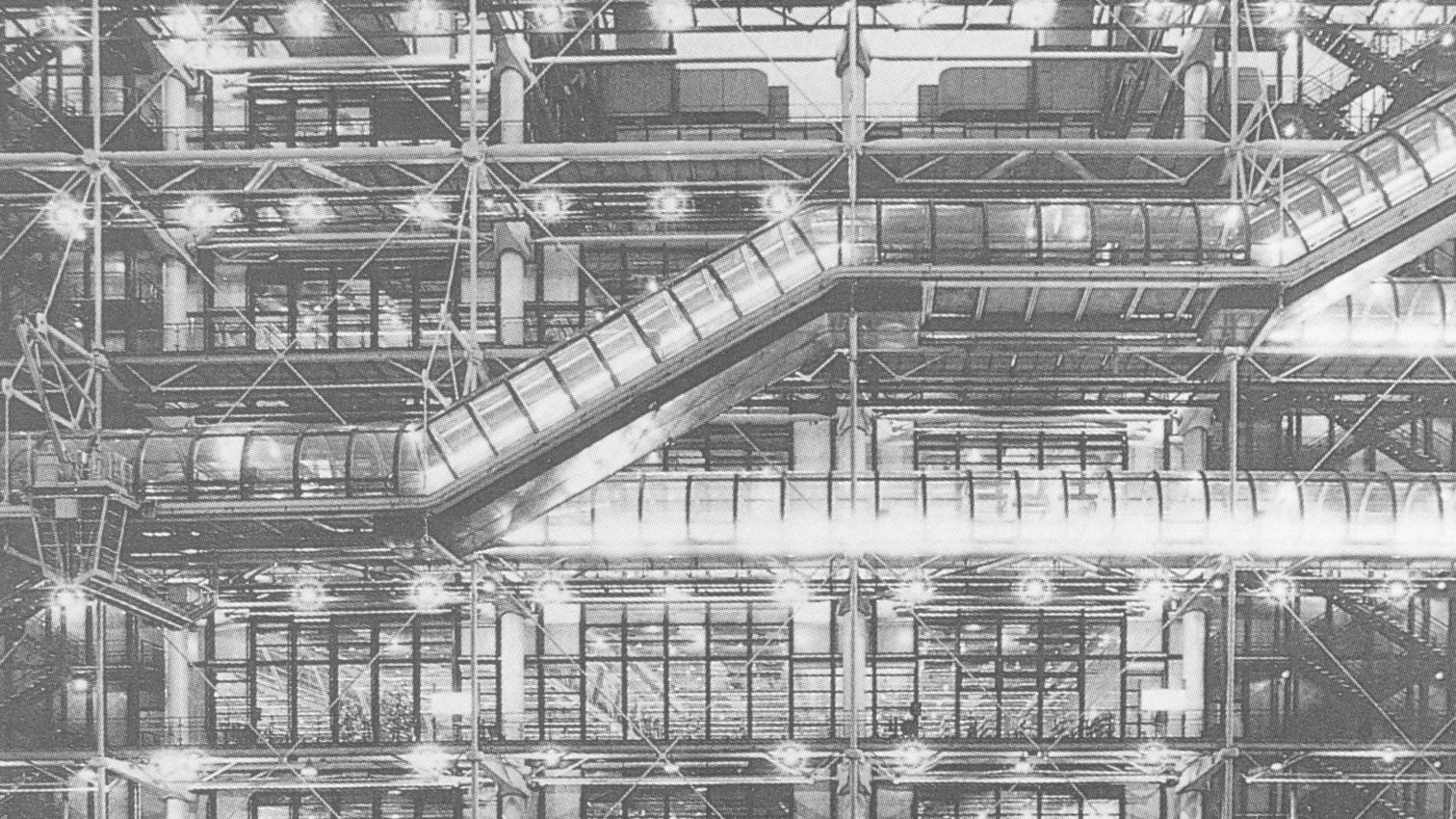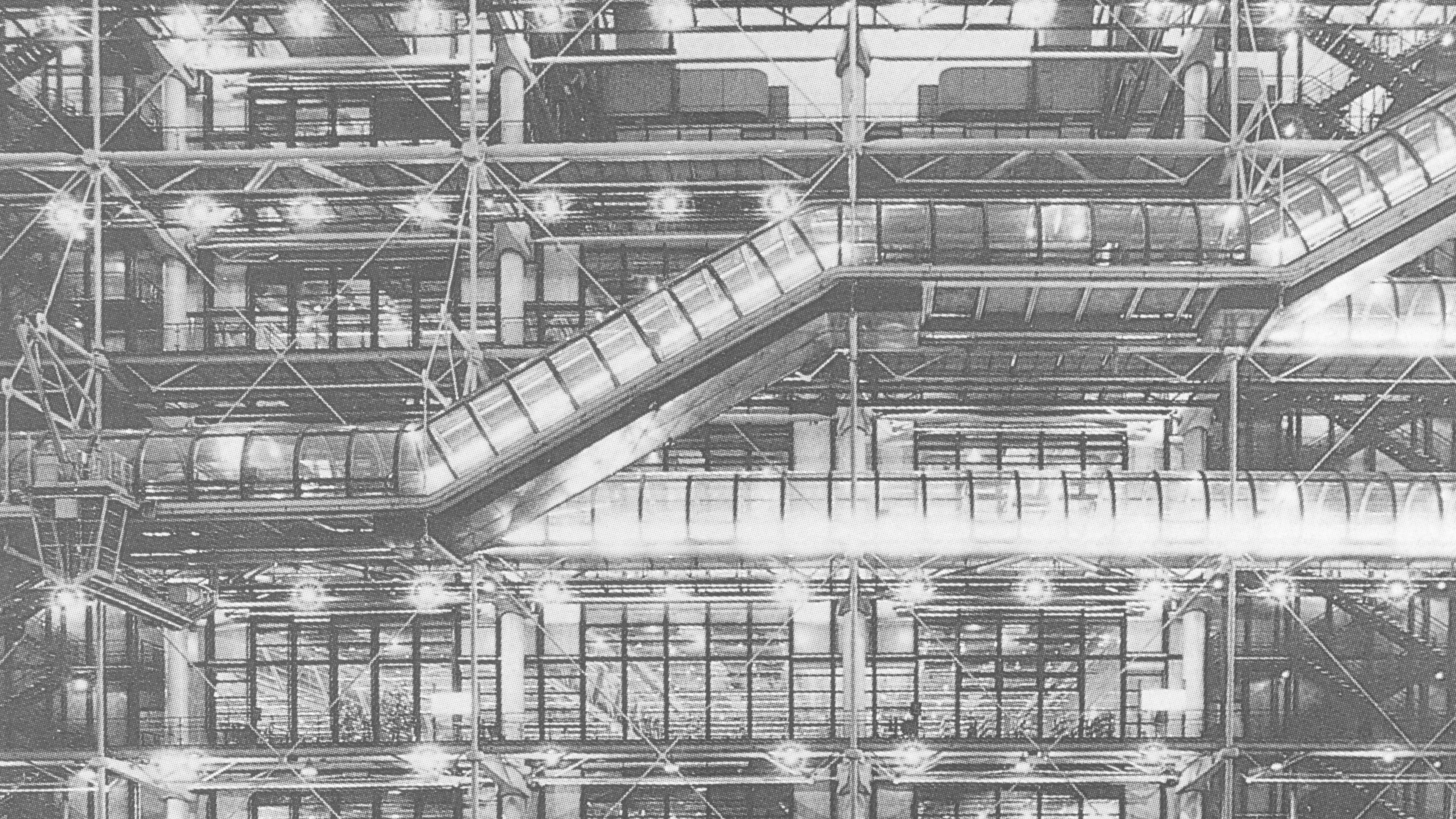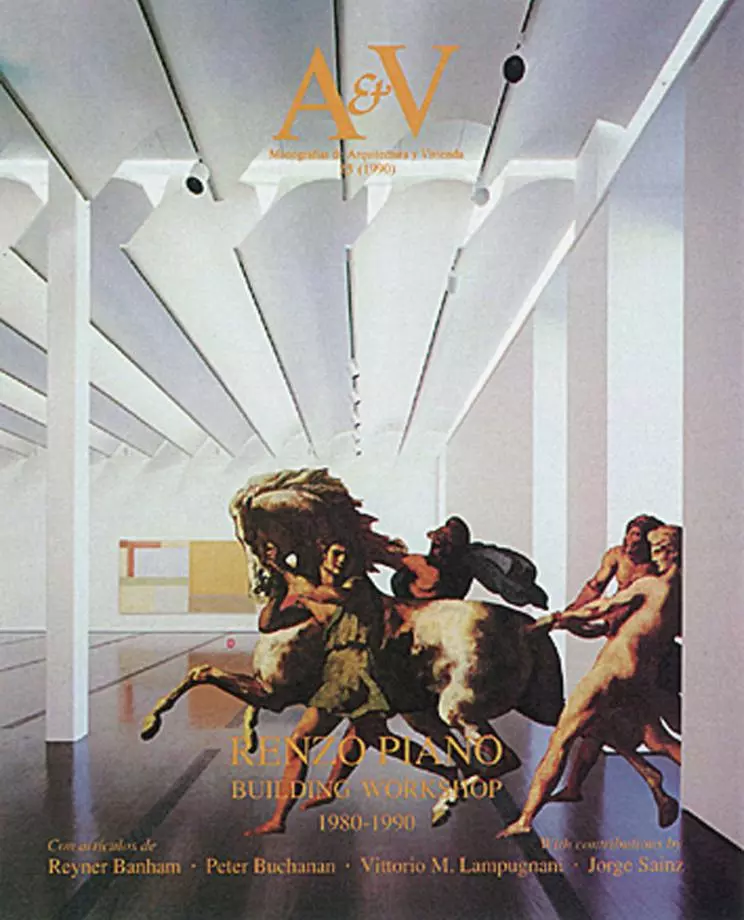
Renzo Piano, a disquieting figure in the panorama of contemporary Italian and international architecture, was a protagonist in the wave of technological experimentalism that marked the 1970's. Instigator of the most provocative casperazioni of that tendency, he has never. nevertheless, embraced its dogmatism but rather, even at the moments of extreme radicality, conserved a subtle thread of skeptic irony.
The great machine that is the Centre National d'Art et de Culture Georges Pompidou - built in Paris berween 1971 and 1977 in conjunction with Richard Rogers - catapulted him overnight to the fore of international architecrral culture. Ar the time, he took on the role of enfant terrible, siupefyingly making true - in steel, iron and glass - all that Antonio Sant Elia or the Archigram group had only drawn (and to resounding scandal ar that!).
Today, almost twenty years later. Piano has no qualms abour distancing himself from what he has come to consider, with a hardly hidden vehemence. an "act of loutish bravado." So show his recent projects. like the Menil Collection Museum. completed a fen' years ago in Houston. Texas: and it is rendered explicit in statements he likes to make when interviewed: "I'm aware of a change between what I did before and what I'm doing now. Now. for example, greater importance is attached to contex. At the start of my career, all the pleasure consisted of making an object, of manipulating it."
All this considered, it comes as no surprise that Piano now adheres to a practical and theoretical approach seemingly contradictory, at least in part. and his coherence is not that of one who with blind obstinacy alwers repeats the same things.
If until recenly he instigated subversion, today. along with it, he advocates silence and upholds normality.






